This article was medically reviewed by Erik Kramer, DO, MPH and by wikiHow staff writer, Hannah Madden. Dr. Erik Kramer is a Board-Certified Primary Care Physician at the University of Colorado. With over 15 years of experience, his clinical interests include obesity and weight management, diabetes care, and preventive care, as well as embracing a holistic approach to primary care. He received his Doctorate in Osteopathic Medicine (D.O.) from the Touro University Nevada College of Osteopathic Medicine and completed his residency at Central Maine Medical Center. Dr. Kramer is a Diplomate of the American Board of Obesity Medicine.
There are 10 references cited in this article, which can be found at the bottom of the page.
This article has been viewed 22,612 times.
Laryngopharyngeal reflux (LPR) is a type of digestive disease in which stomach acid comes up to your esophagus and irritates your food pipe lining, including your throat and vocal cords. If you’ve had acid reflux for a long time, you may have damaged or irritated vocal cords. Take steps to control your acid reflux, then try to rest your voice, stay hydrated, and avoid smoke to heal your vocal cords quickly and stop the pain and irritation in your throat.
Steps
Avoiding Further Damage
-
1Control your acid reflux. Talk to your doctor about the best way to control your acid reflux. Dietary changes, sleep position adjustments, and taking rests after exercising are all natural ways to stop acid reflux from happening. Acid reflux will further your vocal cord damage and make the healing process longer.[1]
- In extreme cases, surgery may be necessary to stop your acid reflux for good.
-
2Enjoy smaller meals to reduce the chances of reflux. Rather than having 3 large meals throughout the day, try to have 5–6 smaller dishes instead. Eating smaller meals gives your body time to digest and prevents your stomach from over-distending. After you eat, avoid lying down or putting pressure on your stomach for 2–3 hours to prevent any acid from entering your throat.[2]
- Don’t eat right before you exercise or sleep since you could force some of your stomach acid back up.
Advertisement -
3Avoid acidic foods and beverages. Coffee, tea, chocolate, alcohol, carbonated beverages, and alcohol can all make acid reflux worse. Eat plain, non-acidic foods like toast, rice, and bananas to avoid exacerbating your acid reflux and injuring your vocal cords more.[3]
-
4Rest your vocal cords by keeping quiet. Your vocal cords let you speak, sing, and yell. The more you use them, the less they are resting and healing. Try to avoid talking or singing for long periods of time and let your voice rest as much as possible. As you first start to heal your vocal cords, try to only speak once or twice a day for about 3 days.[4]
Tip: If you are speaking in front of a large group, use a microphone or megaphone so you don’t have to speak up too loudly.
-
5Speak at a normal volume instead of whispering. Although it seems backward, whispering is actually worse for your vocal cords than speaking at a normal volume. Whispering causes your vocal cords to strain and can make any damage much worse. Use your normal speaking volume whenever you talk.[5]
- Yelling is also very bad for your vocal cords.
-
6Swallow or exhale forcefully instead of clearing your throat. The irritation from acid reflux can make you feel like you need to clear your throat a lot, but the harsh motion on your vocal cords can damage them further. Drink water, swallow, or exhale forcefully out of your mouth to get the tickle out of your throat without clearing it.[6]
- Coughing can also damage your vocal cords.
-
7Avoid taking decongestants. If you have a cold or sinus congestion, you may have been prescribed a decongestant. Vocal cords need a lubricant when they rub together so that they don’t get damaged as you speak. Decongestants remove most of the moisture from your nose and throat and can irritate your vocal cords. Try to avoid taking decongestants until your vocal cords are healed.[7]
- Antidepressants, medications prescribed for Parkinson’s disease, and medications prescribed for some neurological diseases can also be drying. Research the side effects of any medication you are on and talk to your doctor about your options.
-
8Stop smoking tobacco. Inhaling smoke is very drying for your throat and vocal cords. It can also make you cough, which strains your vocal cords and can damage them further. Until your vocal cords are healed, avoid smoking tobacco or cigarettes.[8]
- Stay away from areas that have low air quality because of smoke.
Soothing Your Vocal Cords
-
1Keep a humidifier in your home. The air you breathe goes past your vocal cords in every breath that you take. If you live in a dry climate, the air you are breathing may be drying out your vocal cords and irritating them. Use a humidifier in your home to put moisture into the air you breathe and keep your vocal cords lubricated.[9]
- Keeping a humidifier in your bedroom is helpful for when you are sleeping.
-
2Drink plenty of fluids throughout the day. Every time you drink, you send moisture to your vocal cords. Make sure to stay hydrated by drinking healthy fluids, like water and low-sugar juice, and avoiding fluids that can make you more dehydrated, like alcohol and caffeine.[10]
Tip: Some medications are diuretics, which mean they make water leave your body much faster. Talk to your doctor about what medications you are on and if they are making your dehydration worse.
-
3Moisten your throat with lozenges or a piece of gum. If your throat feels dry or uncomfortable, add some moisture to it by sucking on a lozenge or chewing on some gum. The saliva that your mouth naturally produces will help to lubricate your vocal cords, and some lozenges have a soothing element to help stop throat irritation.[11]
-
4Gargle with salt water twice a day. Stir ½ teaspoon (5.69 g) of salt into 1 cup (240 mL) of hot water. Make sure the salt is dissolved completely in the water. Test the heat of the water to make sure it won’t burn your mouth by dipping a finger in it carefully. Gargle a mouthful of the salt water mixture at the back of your throat for 1 minute, then spit it out.[12]
- Salt water soothes your throat and provides moisture.
References
- ↑ https://www.health.harvard.edu/digestive-health/9-ways-to-relieve-acid-reflux-without-medication
- ↑ https://my.clevelandclinic.org/health/diseases/15024-laryngopharyngeal-reflux-lpr
- ↑ https://www.uofmhealth.org/conditions-treatments/ear-nose-throat/laryngopharyngeal-reflux
- ↑ https://www.nidcd.nih.gov/health/taking-care-your-voice
- ↑ https://www.nidcd.nih.gov/health/taking-care-your-voice#4
- ↑ https://www.aboutgerd.org/laryngeal-pharyngeal-reflux.html
- ↑ https://www.uofmhealth.org/conditions-treatments/ear-nose-throat/laryngopharyngeal-reflux
- ↑ https://my.clevelandclinic.org/health/diseases/15024-laryngopharyngeal-reflux-lpr
- ↑ https://www.nidcd.nih.gov/health/taking-care-your-voice

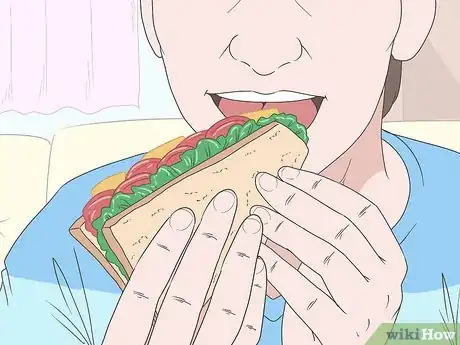
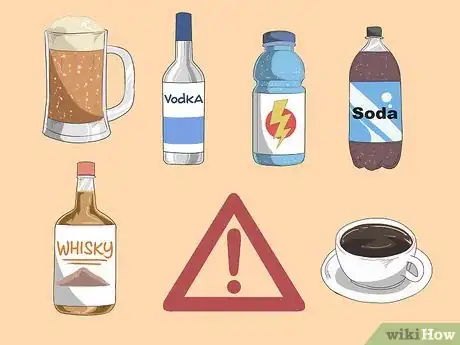

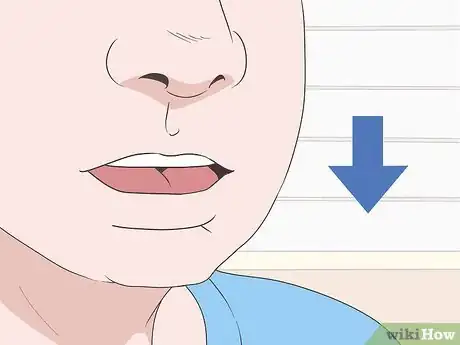
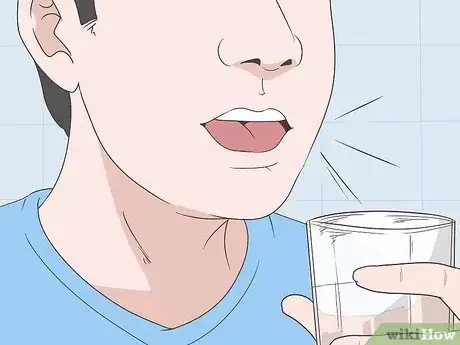
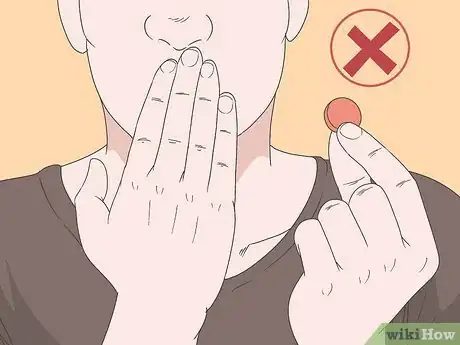
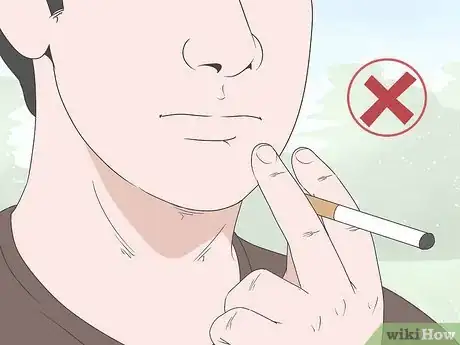
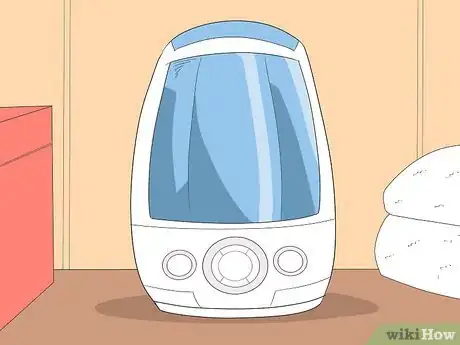

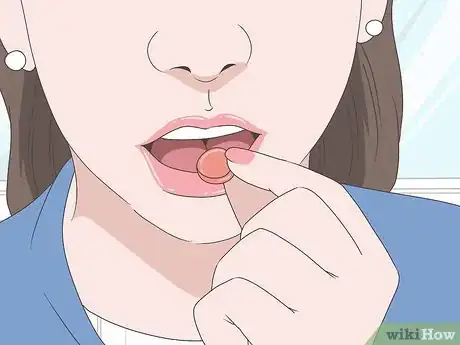



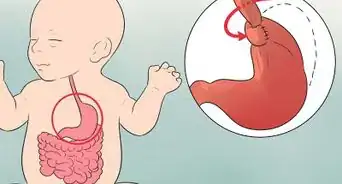
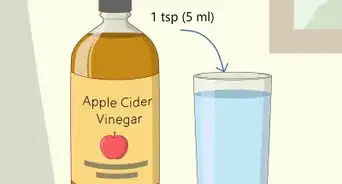


















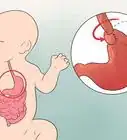
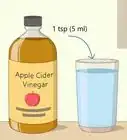



































Medical Disclaimer
The content of this article is not intended to be a substitute for professional medical advice, examination, diagnosis, or treatment. You should always contact your doctor or other qualified healthcare professional before starting, changing, or stopping any kind of health treatment.
Read More...